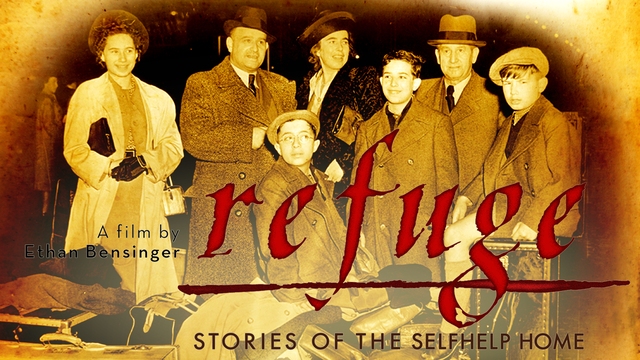In a quiet neighbourhood of Chicago an old age home houses survivors of the Nazi holocaust. As those who suffered under the Nazis enter their final years, this documentary records their incredible stories of survival in the death camps. Fascinating first person recollections of the Jewish experience. The peaceful and loving retirement home they live in is a poignant contrast to the infinitely darker institutionalised existence they suffered through those terrible days.
On the morning of November 9,1938, Horst Abraham walked out onto his family's balcony. The synagogues in Berlin were in flames. In Stuttgart, more than 600 kilometres away, Leni Weill heard a banging on the door. It was the police, coming to take her father to the Dachau Concentration Camp. He was just one of 30,000 Jewish men incarcerated in concentration camps that day.
"It broke something within me," said another refugee about the anti-Jewish violence of Kristallnacht.
"I decided that I could not just be a good German and good Jew anymore, that our days were numbered."
These surviving men and women speak vividly of loss of family and place, of separations, and of decisions that meant the difference between life and death. They describe the myriad paths to survival: fleeing to the Jewish ghetto in Shanghai, hiding in the French countryside and being taken in by English families as part of the Kindertransport.
"I remember saying good-bye to my parents. And I remember seeing my mother and my sister waving to me as the train went," said Marietta Ryba, who was 13 when her family sent her to safety in England. Her parents and sister, Edith Stern, with whom she is now reunited, were sent to Auschwitz.
And they speak heartbreakingly of those who perished; husbands, parents, siblings and children.
"The...the train started moving...and I see my father was trying to go with the...I...I don't remember. I only know it was just...it just breaks my heart when I think about it." Their trauma and bereavement still bubbles close to the surface, over half a century later.
Yet theirs are also stories of renewal and compassion, of finding love and creating new families, and of the remarkable resilience and character of this final generation at the 'Selfhelp' home in Chicago.
"I am lucky because no matter how bad the situation was, or seems to be now, somehow I always wiggle out," smiles Edith, who found love again late in life at the home.
"I survived the Holocaust, I am healthy, I can run, I can dance, I can jump, I can carry, so yeah, I'm lucky, right?"
"We are the last generation, we are dying out," Edith tells us. But although their time may be coming to an end, their stories carry a relevance that will burn through the ages.
LEARN MORE.
WATCH MORE.
JOIN THE DISCUSSION.
 In a quiet neighbourhood of Chicago an old age home houses survivors of the Nazi holocaust. As those who suffered under the Nazis enter their final years, this documentary records their incredible stories of survival in the death camps. Fascinating first person recollections of the Jewish experience. The peaceful and loving retirement home they live in is a poignant contrast to the infinitely darker institutionalised existence they suffered through those terrible days.
In a quiet neighbourhood of Chicago an old age home houses survivors of the Nazi holocaust. As those who suffered under the Nazis enter their final years, this documentary records their incredible stories of survival in the death camps. Fascinating first person recollections of the Jewish experience. The peaceful and loving retirement home they live in is a poignant contrast to the infinitely darker institutionalised existence they suffered through those terrible days.


